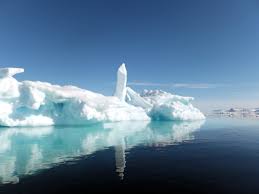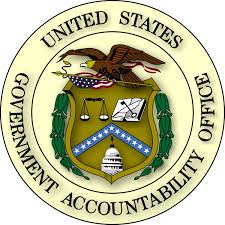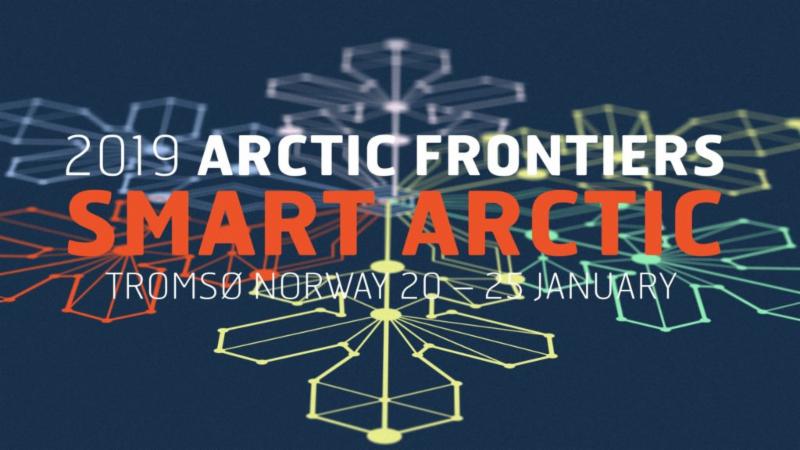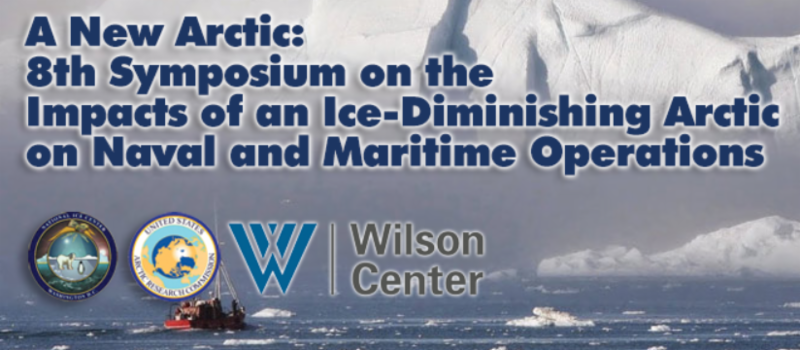|
|
|
|
|
|
|
|
|
No Arctic-science events are scheduled for today.
|
Media
 New Dataset Expands Understanding of Arctic Spring Bloom. New Dataset Expands Understanding of Arctic Spring Bloom. Understanding how the ocean works is like putting together a million-piece puzzle. There are many questions; finding answers takes time, resources, and opportunity. But even when scientists believe they know how the pieces fit together, new knowledge can change the shape of the puzzle. A paper recently published by Dr. Jeffrey Krause of the Dauphin Island Sea Lab and the University of South Alabama adds another piece to the puzzle in understanding the impact of diatoms on the Arctic Spring Bloom. EurekAlert!
"We Have Never Been Here Before" - Gay Sheffield, on Ecosystem-wide Changes in the Bering Sea. The Bering Sea is undergoing massive changes that include the dramatic loss of sea ice last winter. As Alaska Sea Grant Marine Advisory agent Gay Sheffield notes in the interview below, "we have never been here before." Ever since records starting being kept in 1850, sea ice had never been as scarce as it was during the winter months of 2017-2018, according to scientists. John Walsh of the International Arctic Research Center at the University of Alaska Fairbanks attributes it to three things: above average air temperatures during the fall, a very stormy winter, and warm water temperatures. Alaska Sea Grant
Thinner Arctic Sea Ice Could Mask Long-Term Climate Trends. Multiyear Arctic sea ice--ice that has survived at least one summer--is an important indicator of long-term changes in polar and global climate. But, with such ice now covering less than one-third of the Arctic Ocean, scientists may soon have to rely on other measures. "The [ice] thickness and coverage in the Arctic are now dominated by the growth, melting and deformation of seasonal ice," says Ronald Kwok of NASA's Jet Propulsion Laboratory and ICEat- 2 science team. "We've lost so much of the thick ice that changes in thickness are going to be slower due to the different behaviour of this ice type." PhysicsWorld
 US GAO Report Underscores Low-Risk Arctic Assessments. US GAO Report Underscores Low-Risk Arctic Assessments. A new US Government Accountability Office (GAO) report has highlighted there is no immediate concern about military threats in the Arctic region by the Pentagon and the US Navy (USN). According to recent assessments, the Arctic threat level remains low and the Department of Defense (DoD) has the capabilities required to execute its 2016 Arctic Strategy, the GAO said in its November report. IHS Jane's 360
A Rogue Ice Shelf Covering the Arctic Ocean? Fifteen miles inland from the frozen coast of the Arctic Ocean, Teshekpuk Lake is one of the largest freshwater bodies in Alaska. On its northern shoreline are sandy bluffs that hold fossils of walrus, ringed seals and beluga. Thousands of years ago, this shore was an ocean beach. Digging into that beach in the middle of the tundra, a Fairbanks researcher has found evidence of what she describes as a "rogue ice sheet that isn't on the map." SitNews
|
|
Future Events
December 6, 2018 (Washington, DC).
U.S. Sen. Dan Sullivan (R-Alaska), chairman of the Subcommittee on Oceans,
 Atmosphere, Fisheries, and Coast Guard, will convene a subcommittee hearing titled "Preparing for Maritime Transportation in a Changing Arctic," at 9:30 am on Thursday. The hearing will examine emerging transportation issues in the changing Arctic region, including increases in vessel traffic and the resulting need for updates in waterway management, infrastructure investment, and domain awareness.
Witnesses (list subject to change):
- Mr. Willie Goodwin, Chairman, Arctic Waterways Safety Committee
- Andrew Hartsig, Director, Arctic Program, Ocean Conservancy
- Ms. Kathy Metcalf, President and CEO, Chamber of Shipping of America
- Captain Ed Page, Executive Director, Marine Exchange of Alaska
American Geophysical Union Fall meeting, December 10-14, 2018 (Washington, DC USA). The AGU 2018 Fall Meeting will mark another dynamic year of discovery in Earth and space science, serve as the advent of AGU's Centennial year, and provide a special opportunity to share our science with world  leaders in Washington, D.C. As the largest Earth and space science gathering in the world, the Fall Meeting places you in th
e center of a global community of scientists drawn from myriad fields of study whose work protects the health and welfare of people worldwide, spurs innovation, and informs decisions that are critical to the sustainability of the Earth.
ArcticNet: Annual Scientific Meeting 2018, December 10-14, 2018 (Ottawa, ON Canada). Canada's North is experiencing unprecedented change in its sea and terrestrial ice, permafrost and ecosystems under the triple pressures of climate change, industrialization and modernization. The impacts of these pressures can be seen on food and energy security, shipping, sovereignty, northern community health and well-being, and sustainable development and resource exploitation. All these issues have brought the North to the forefront of national and international agendas. Building on the success of its previous Annual Scientific Meetings and International Arctic Change Conferences, the Arctic Network of Centers of Excellence announces the 14th ArcticNet Annual Scientific Meeting.
USARC Commissioner Jacqueline Richter-Menge to deliver the Nye Lecture at the 2018 AGU Fall Meeting, December 11, 2018 (Washington, DC USA).The US Arctic Research Commission (USARC) is pleased to announce that Commissioner Jacqueline Richter-Menge will present this year's Nye Lecture, titled "A Career of Change," at the Fall Meeting of the American Geophysical Union (AGU) in Washington, DC at 2:50 pm on Tuesday, December 11, 2018 in the Marquis room of the Marriott Marquis Hotel, 901 Massachusetts Ave. NW, Washington, DC 20001.
** New this week ** Keynote: US Senate Perspectives on Science Policy, December 12, 2018 (Washington, DC. USA). U.S. Senators Lisa Murkowski of Alaska and Maria Cantwell of Washington will discuss today's top science policy topics, from hazards to scientific integrity. The senators will be sharing remarks on the science policy issues facing their constituents and the world, followed by a Q&A moderated by AGU CEO and Executive Director Chris McEntee. This event is part of the American Geophysical Union Fall Meeting.
** New this week ** The Synoptic Arctic Survey Informational Meeting During the AGU Fall Meeting, December 13, 2018 (Washington, DC USA). The Synoptic Arctic Survey (SAS) will be hosting an informational meeting during the American Geophysical Union (AGU) 2018 Fall Meeting. This open meeting will convene 12:30 - 1:30 p.m. Eastern Standard Time on Thursday, 13 December 2018 at the Cambria Hotel Washington D.C. Convention Center (899 O Street NW, Washington, DC, 20001), Duke Ellington Room 1, in Washington D.C. The SAS is a developing international program envisioned to mount a coordinated, multi-nation, oceanographic field-based effort on a Pan Arctic Scale quasi-synoptically over a single season to achieve the baseline understanding of the fundamental structure and function of the linked carbon-ecosystem-physical systems that will permit detection of ongoing and future changes. Development of the program has been ongoing since 2015.
** New this week ** Fast Thaw, December 14, 2018 (Washington, DC USA). Arctic 21 will host a presentation with Dr. Katey Walter Anthony. The discussion with consider permafrost thaw and methane emissions from lakes in the Arctic.
'UK-US Maritime, Aerospace and Security Cooperation in the Arctic'. Delegates will discuss and debate trade and security-focused Arctic collaboration in the Arctic between US, the UK, and their allies. This convening is designed to deepen the UK-US special relationship by strengthening trade and cooperation in four areas in particular: maritime services, aerospace, fisheries, defense and security. The Arctic Encounter London is co-produced by the Polar Research and Policy Initiative and the Arctic Encounter. The Polar Research and Policy Initiative (PRPI) is a London-based international think-tank dedicated to Arctic, Nordic, North Atlantic, North Pacific and Antarctic affairs. The Arctic Encounter is the largest annual Arctic policy and business conference convening in the United States, with partnerships and convening efforts worldwide.
 Arctic Frontiers, January 20-25, 2019 (Tromso, Norway). The Arctic Frontiers is a global scientific conference on economic, societal, and environmental sustainable growth. This year's theme will be "Smart Arctic," with a pan-arctic emphasis, and an effort to build new partnerships across nations, generations and ethnic groups. Arctic Frontiers provides a forum for dialogue and communication between science, government and industry. The plenary program will have five main sessions: State of the Arctic, Blue Growth, Smart Solutions, Bridging the Gap, and Arctic business prospects. An abstract-driven science program will address Plastics in the Ocean, the Future of Governance and Handling Vulnerability in Arctic Ecosystems, State of the Arctic and A Smart Arctic Future.
Save the Date! 
Mark your calendars to attend IDA-8, which some have called one of the best Arctic gatherings around. Historically, this biennial symposium was co-hosted by U.S. National/Naval Ice Center (NIC) and the US Arctic Research Commission (USARC). In 2019, these partners will join forces with the preeminent Wilson Center's Polar Institute, as a third co-host. The now 2-day symposium will be held in the Ronald Reagan Building Amphitheater, in Washington, DC. The event will focus on a broad cross-section of naval and maritime operations and issues in an ice-diminishing Arctic. The symposium brings together nationally and internationally recognized experts on Arctic governance, geopolitics, marine operations, infrastructure, science, and environmental observations, from the local, regional, and pan-Arctic scale. Information on prior symposia, including lists of speakers, video clips, and copies of presentations, is available here. Attendance is free, and registration will begin in Spring 2019. The event will be webcast live, and video recorded.
 of the AAG includes over 8,500 geographers converging from the U.S., Canada, and nearly 60 other countries in a typical year including geographers, GIS specialists, environmental scientists, and other leaders for the latest in research and applications in geography, sustainability, and GIScience. of the AAG includes over 8,500 geographers converging from the U.S., Canada, and nearly 60 other countries in a typical year including geographers, GIS specialists, environmental scientists, and other leaders for the latest in research and applications in geography, sustainability, and GIScience.
|
|

  
4350 N. Fairfax Drive, Suite 510
Arlington, VA 22203, USA
External links in this publication, and on the USARC's World Wide Web site ( www.arctic.gov) do not constitute endorsement by the US Arctic Research Commission of external Web sites or the information, products or services contained therein. For other than authorized activities, the USARC does not exercise any editorial control over the information you may find at these locations. These links are provided consistent with the stated purpose of this newsletter and the USARC Web site.
|
|
|
|
|
|
|
|
|